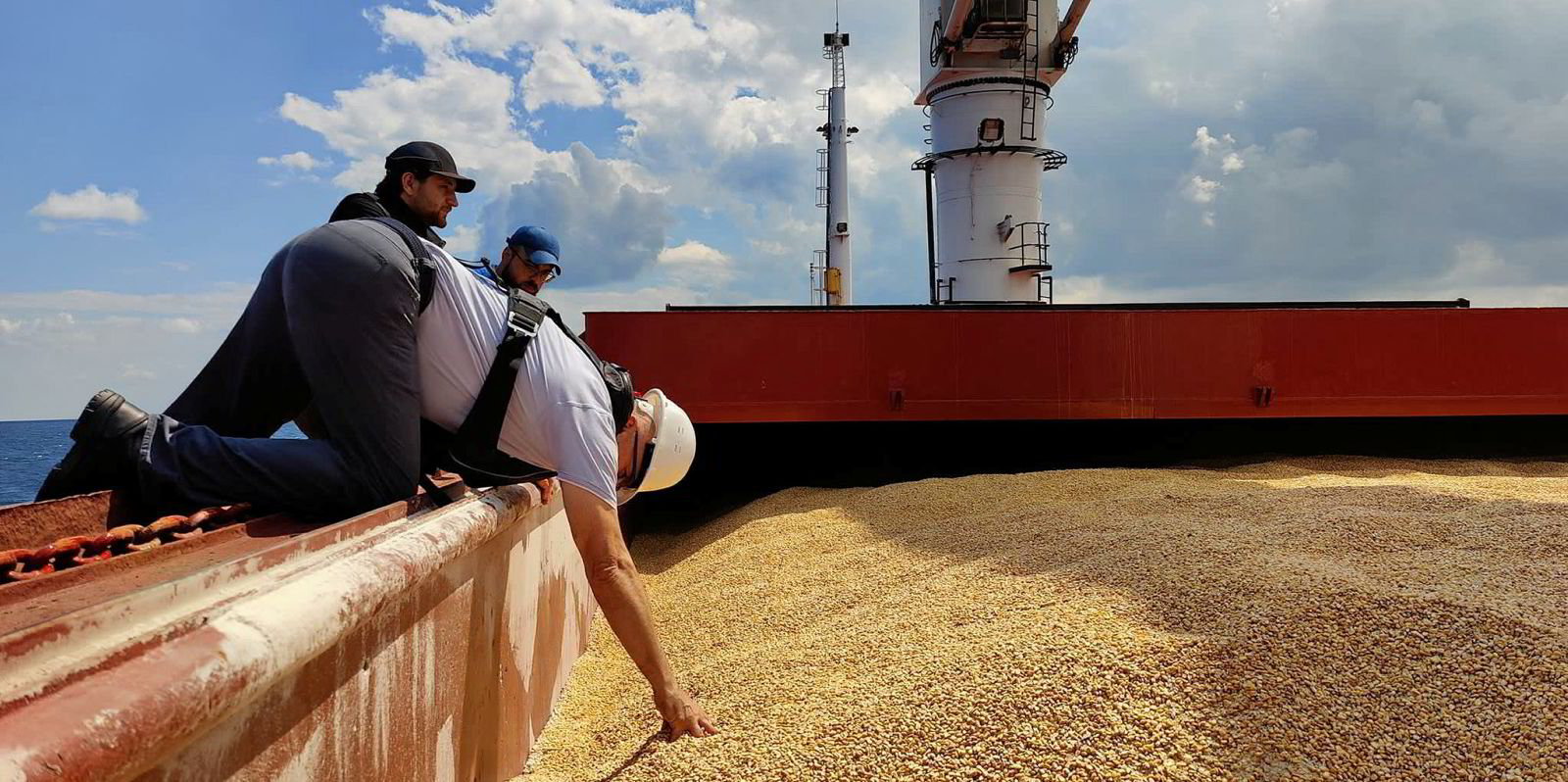As widely expected, Russia announced on Monday that it will not extend the United Nations-led Black Sea corridor for the export of Ukrainian grain.
“The Black Sea agreements ceased to be valid today,” Russian government spokesman Dmitry Peskov said in his daily press briefing, according to his Telegram channel.
“The part of the deal concerning Russia has not been fulfilled [and] as soon as the Russian part is completed [fulfilled], the Russian side … will return to this deal immediately.”
UN sources confirmed that Moscow formally delivered a notification to that effect at the Black Sea Grain Initiative (BSGI) coordination centre in Istanbul.
Since it began on 1 August of last year, the four-way agreement between Russia, Ukraine and mediators the UN and Turkey had covered 1,004 voyages for nearly 33m tonnes of foodstuff exports from Ukraine.
Russian officials have been saying for months that they saw no reason to extend the agreement, given UN and Western countries’ failure to honour pledges given in parallel last year about furthering Russia’s own agricultural exports — particularly the resumption of an ammonia pipeline through Ukrainian territory.
On 11 July, the UN made a last-ditch effort to save the initiative by offering concessions — mainly the softening of financial sanctions that would allow the Russian Agricultural Bank to reconnect to the SWIFT global interbank payment system.
The offer, however, failed to sway Russia, whose list of grievances has been far longer.
Apart from the ammonia exports, Moscow wanted the removal of port bans on Russian ships, the lowering of maritime insurance premiums currently applying to Russian waters and the facilitation of agricultural machinery imports into Russia.
The Kremlin has given plenty of hints since 11 July that the BSGI was dead.
On 13 July, President Vladimir Putin said his patience was at an end and he was considering suspending the scheme until his demands were met.
In another telling move one day later, the Russian defence ministry issued a warning to seafarers operating in corridor waters, citing the increased risk from floating Ukrainian mines.
Dead in the water
The Russian moves merely formalise the existing, defunct state of the BSGI. It had been in effect dead in the water since 27 June, when Russian inspectors stopped registering new BSGI vessels, starving the scheme of inbound ships.
With the pipeline of ships gradually running out since then, the last BSGI vessel sailed from Odesa early on Sunday, the 43,800-dwt TQ Samsun (built 1996).
The wind-down of the grain initiative has already diverted a number of general cargo ships, handysizes, supramaxes and panamaxes to other trades, increasing vessel supply and putting pressure on freight rates.
Before Russia suspended the initiative, 29 vessels had been queuing in Turkish waters hoping to obtain the go-ahead to sail to Ukraine. All these ships will have to find alternative employment now.
The initiative had long supported earnings of smaller bulkers, at a time netting shipowners up to 2.5 times the normal bulker freight rates.
However, falling bulker markets, week-long inspection delays at the Bosphorus and perceptions of higher risk have dampened owners’ enthusiasm to keep sending their vessels there.
Russian obstruction that had slowed BSGI voyages to a trickle already caused the trade to lose its relevance for bulkers, Doric Shipbrokers co-founder Vasilis Mouyis told TradeWinds on Monday.
With the scheme gone, it is far from certain that an alternative for Ukrainian exports can be found, given that only very daring shipowners are likely to rely on Ukrainian insurance guarantees and eventual Nato protection for convoys under the threat of Russian mines and port bombardment.
“No owner in their right minds would approach Ukraine under these circumstances,” Mouyis said. “They would be basically uninsured”.
The BSGI has been long hailed as contributing to stable food prices.
Expressing frustration and anger at Russia’s decision to suspend the BSGI, UN secretary general Antonio Guterres said on Monday that wheat prices have already jumped after Moscow’s withdrawal.
Analysts, however, have said that bumper crops in Australia, Canada and Brazil should be sufficient to supply food markets in the medium term.
On the other hand, the BSGI’s demise will definitely stretch supplies, especially if other bottlenecks in food production arise elsewhere later this year.
It is particularly worrying that the disruption in the initiative comes as the grain harvest on the Black Sea is beginning. Shipbrokers said late last month that Ukraine is already sitting on more than 10m tonnes of unsold grain it can distribute only with great difficulty over alternative routes, whether by land or via the River Danube.
Meanwhile, despite Moscow’s protests about broken UN pledges to lift hurdles on its own agricultural exports, Moscow has been able to keep selling much of its grain abroad, to friendly or neutral countries — much of it in roubles.
Some of these exports have even been from fields and ports in the Russian-occupied areas of Ukraine.
Lastly, the end of the BSGI bodes ill for IMO efforts to repatriate more than 60 vessels still stuck in Ukrainian ports since Russia invaded in February 2022.
Thirty-five stranded ships had used the grain corridor to leave Ukraine.
A missile attack that damaged facilities near the port of Odesa on Monday night highlights how difficult it will be for Ukraine to revive a grain export corridor in the Black Sea.
According to the Telegram channel of a Ukrainian official, “port infrastructure facilities and several private homes” were damaged — whether as a result of direct hits or by debris from downed missiles.
The Russian defence ministry announced that its forces struck a ship repair plant near Odesa, as well as fuel storage facilities close to Odesa and Mykolaiv — another big grain export terminal.
The ministry claimed that the ship repair plant was used to prepare unmanned boats that recently attacked Russian targets in Crimea, and that the fuel depots had been supplying the Ukrainian army.
The attack came one day after Russia pulled safety guarantees for waters near Odesa, through which the United Nations-led Black Sea Grain Initiative (BSGI) corridor used to pass.





